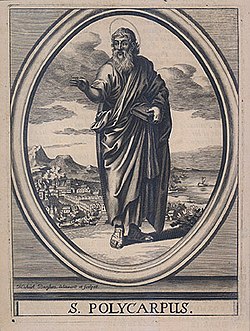 3rd post in the series by Roger Parvus. The complete series is archived here.
3rd post in the series by Roger Parvus. The complete series is archived here.
TDOP = The Death of Peregrinus by Lucian. Harmon’s translation here.
In my previous post I argued that the Asian delegates to Antioch mentioned in the letters to Philadelphia and to Smyrna should be identified as being part of the Asian delegations that, according to Lucian, were sent to encourage Peregrinus when he was imprisoned by the governor of Syria. The author of the letters was Peregrinus, I maintain, and when he wrote them he himself was being led in chains to Antioch for imprisonment and – he hoped – martyrdom. And having heard that the recent factional turmoil in the church of Antioch had ceased, he wanted the churches in Philadelphia, Smyrna and other cities in Asia to appoint delegates to go Antioch for his martyrdom.
I was intending to next look into the would-be martyr’s route, but – on second thought – I have decided that now would be the best time to inspect the other letter that he wrote after learning that peace had been restored in the Antiochene church. That letter is the letter to Polycarp, and although it was written at the same time as the letters to Philadelphia an Smyrna, it differs from them in several significant particulars. As will be seen, these differences are the clue to its true character. Solving the many puzzles of this letter will confirm that the would-be martyr was indeed being led to Antioch, not Rome.
THE LETTER TO POLYCARP
Polycarp is identified as the bishop of Smyrna in the letter addressed to him but, strangely, not in the letter to the Smyrneans that was written at practically the same time. The prisoner wrote the two letters just a short while after his departure from Smyrna, having visited with Polycarp and his church during his stop there. Yet, from the kind of advice contained in the first five chapters of the letter to Polycarp, one would never guess that the two men had just parted. One could legitimately wonder why they didn’t discuss the material in those chapters when they talked face-to-face presumably just days before. And the advice to Polycarp regarding his responsibilities to the members of his church who are widows, or married, or slaves (IgnPoly 4 & 5) looks like advice for a newly installed bishop. Continue reading “[3] THE LETTERS SUPPOSEDLY WRITTEN BY IGNATIUS OF ANTIOCH: 3rd post in the series”
